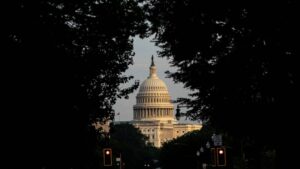The recently unveiled Employment Rights Bill by the government outlines a roadmap for various new workplace rights, but crucially, workers will have to wait two years for significant protections, including protection from unfair dismissal from day one of employment. This predictable delay has raised concerns among advocates for workers’ rights and has sparked mixed reactions from business groups.
The timeline presented by the government clearly indicates that while these significant reforms are on the horizon, the actual implementation will lag behind initial expectations. The promised end to “exploitative” zero-hours contracts, a primary focus of the bill, will not take effect for a further two years. Additionally, improvements aimed at boosting access to flexible working arrangements will also not materialize until the same period has elapsed. It is noteworthy that this delay represents the first clear timeline the government has provided regarding when various sections of the Employment Rights Bill will be enacted.
According to the government, this timeline aims to deliver “clarity and certainty” to businesses. However, some industry representatives have countered that the phased implementation threatens to introduce a “wave of disruptive changes” that could unsettle the balance within the employment landscape. This perspective reflects concerns that the delay in adopting crucial worker protections will prolong uncertainty for employees.
Currently, the Employment Rights Bill remains under review by the House of Lords, and as it stands, Royal Assent is not expected until the fall of 2025. In a sweeping reform move, the government has announced intentions to repeal the strikes act of 2023 and substantial parts of the trade union act of 2016, targeting what it describes as a restoration of more harmonious relations with unions.
However, some initiatives within the bill will proceed without delay. For instance, starting in April 2025, new whistleblowing protections and the introduction of day one paternity leave, along with unpaid parental leave rights, are set to take effect. A Fair Work Agency is also on track to be established. Further changes targeted at sick pay and trade union measures will include a simplification of the union recognition process.
As 2026 approaches, the government has indicated that it will work towards eliminating “unscrupulous” fire and rehire practices, enhancing tipping laws to ensure fairer allocations, and other modifications engaging with workplace practices. Despite this, some of the more contentious aspects of the plan—specifically the ban on exploitative zero-hour contracts, the introduction of “day one” protections against unfair dismissal, and improved access to flexible working—will remain subject to further discussion, postponing their enforcement until 2027.
Business Secretary Jonathan Reynolds defended this approach as a method of providing businesses with the clarity and predictability required to thrive. By phasing in reforms, he argued that a balance can be struck between granting substantial employee protections while maintaining the operational realities of running a business effectively. This view attempts to foster an environment where both employees and employers can flourish.
In contrast, the General Secretary of the TUC, Paul Novak, criticized the delays and insisted that these updates to workers’ rights were long overdue, emphasizing urgency in their implementation. Meanwhile, Tina McKenzie from the Federation of Small Businesses highlighted that the proposed timeline would complicate hiring processes and existing employment conditions, unless business feedback is taken into account to improve the reforms.
Ultimately, the Employment Rights Bill aims to reshape the employment landscape, yet the two-year wait for core worker protections continues to be a point of contention, indicating a potential clash between employee rights advocacy and business continuity concerns. The unfolding discourse around this bill will likely reflect broader societal values regarding work-life balance, worker dignity, and the role of employers in fostering supportive work environments.









